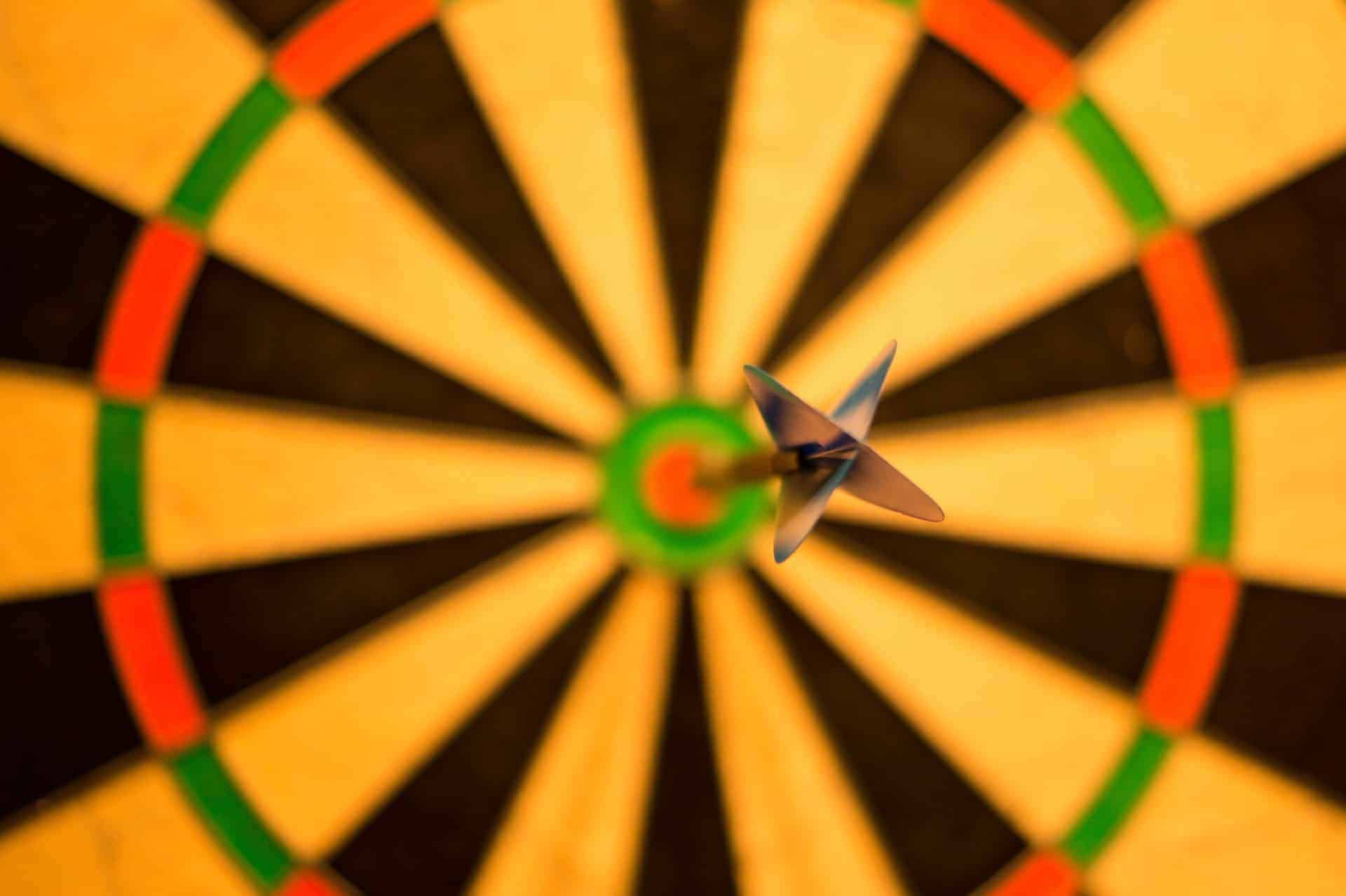All the leaders you follow in every sphere have this in common. Self-discipline. Some billionaire disruptor out there might be a dropout but when interviewed about their daily process, you’ll see the self-discipline woven into their day.
Learning how to lead yourself starts with discipline. You achieve happiness and success when you impose strategic plans and self-control as you work on your goals.
Self-discipline is the not-so-secret sauce to the success of the greats. It’s part of adulting. It’s part of being a professional. It’s a big part of wellness.
You’d think it’s common sense but if it were only that easy, many more people would have been successful today. But why do we fail to have a sense of self-discipline? Maybe just hearing the word alone seems overbearing or stressful.
What if we think of self-discipline as organization? It’s really just allocating time and intentionally putting 100%, persistent and consistent effort toward your goals.
With self-discipline, you make things happen and I think there’s nothing more fulfilling than that. You look back and you know you got where you are through sheer grit and self-restraint. It feels awesome.
Self-Discipline Means Making Wise Choices
Knowing what’s right for you and following through is only easy when you have self-discipline.
The caveat is that the more you make wise choices, the easier it is to make more wise choices.
Self-discipline is about pursuing good decisions that benefit your life now and in future. It’s sticking to doing what’s right rather than following what feels right ‘in the moment’ or what feels easy, like your fallback, unhealthy habits.
Is Self-Discipline Worth It?
Adversity is always part of our life. There will always be moments when things seem insurmountable and the only thing we can control is how we respond to them.
This is where self-discipline becomes a great power we can harness to our success.
Self-discipline starts with self-control, like refusing to eat your favorite glazed donuts to maintain your blood sugar levels, or simply avoid those empty calories.
As you keep training your mind to make smart decisions, you become resistant to temptations and better with handling the responsibilities and challenges you’ll face towards your goals.
When practiced consistently, self-control builds self-discipline, and self-discipline just strengthens your self-control. It’s win-win and making good decisions becomes effortless. You simply no longer eat unhealthy, sugary carbs. You simply wake up at seven and start your day with meditation and a quick workout.
You thrive even in challenging situations and you become healthier in all aspects of your life because you know how to set and follow boundaries that work for your own good.
Five Pillars Of Self-Discipline
According to Steve Pavlina, the author of the book Personal Development for Smart People, there are five pillars of self-discipline: acceptance, willpower, hard work, industry, and persistence.
Acceptance is the first thing to achieve in self-discipline. For instance, if your goal is to tone your stomach, you need to accept the beginner’s level exercises you might need to start with. Going for difficult workouts will just wear you out, knock you out, and throw your motivation out the window.
Identify the current level of discipline and capacity in the areas you want to improve so you can tailor a more realistic approach. Setting unrealistic goals will not take you anywhere.
Once you’ve spotted where you’re currently at, you can now move on to building your willpower. When used right, this initial burst of energy will help you gain momentum and build your confidence.
Ride that strong wave when your willpower is burning strongly. Fan the flames by winning. When you start, know your enemy, so to speak, so you create a plan on hitting the areas of weaknesses– and you execute on it.
Willpower can run out sooner or later, so you have to run on a more sustainable fuel– hard work.
This is the stage where you’re tempted to give up. You start experiencing discomfort and struggle. You work hard on it anyway.
For your habits to stick, you need to be industrious– you need to put in time and effort. Real effort with strategies and research to make sure you’ll succeed. To grow a seed, you need to water it everyday, but you can also look up what that specific plant needs and prefers! You don’t just water it blindly. Treat your goals the same way.
There will be many setbacks where you’ll be tempted to give up. To succeed, you need to be intentional about your goals. Gather strength and motivation from your progress and stay persistent so you can finish what you started.
Practicing Self-Discipline For Overall Wellness
Here are tips on how to hack self-discipline. Think of it as a foundational habit where the rest of your new, good habits stand.
‘Start With The End In Mind.’
Most of us have goals we want to achieve. Close your eyes and picture what you’d like to be in one or five years. Imagine how it feels to get that dream. Now open your eyes.
As much as it can be a life-changer, you also have to acknowledge the perseverance you need to get there.
Creating plans in your mind and deciding to commit to them helps you develop a healthy mindset. Once you have a plan, you remove the illusion that it might be impossible or unattainable. This gives you confidence and concrete steps to follow.
List down reasons why you should do what you do.
Acknowledge A Weakness And Focus On It.

You can’t overcome your weaknesses if you’re unaware of them or keep functioning as if they don’t exist.
List the things that you should improve in your life, like your sleeping routine or eating habits. What traits do you think might be a stumbling block for you as you take steps toward your goals? Do you tend to procrastinate? Or maybe you get discouraged easily.
After coming up with the list, focus on one item at a time. Fix it.
Note that these weaknesses are essential to improving. If you have unhealthy eating habits or a tendency to put things off, of course you should fix that. You can do a diet plan and try time-blocking and breaking down tasks.
If you’re not good at bookkeeping for your business, there’s no need to waste time trying to get past your hatred for math. You can delegate that.
Focus on the weaknesses that might stop you from achieving your goals.
Start With Small Realistic Goals.
A study says that simpler actions become more habitual quickly.(1) So you may want to take it slow to build your habits. Break down your steps into easily achievable tasks.
For example, if you want to declutter your house, you start with a room, and you break that down further by starting on a shelf or a cabinet.
Make Yourself Accountable.
When starting out with self-discipline, you’re prone to many temptations and challenges. It’s easier to back out because you only have yourself to answer to.
If you’re all set to commit to a goal, hold yourself accountable. Relay your plans to a family member or a friend. Post it on social media. This way, you establish your dedication to finish your goal.
Remove Pitfalls.
Keep your focus on your goal by removing and avoiding things that can trip you up. Why would you buy matches when you want to avoid starting fires?
If you’re trying to eat healthy, remove all the junk food in your house. If you’re trying to improve your focus at work, uninstall your distracting apps (games, social media), block those websites, and declutter your desk. Put your phone far away from your workspace.
Practice Saying No.
You’re fixing your weaknesses and removing pitfalls involving yourself. You also need to set boundaries for other people.
Don’t be afraid to say ‘no’ when people ask to take more of your time. Don’t hesitate to cut ties with people who still practice the bad habits you want to leave behind.
Reinforce the Kaizen System.
The Kaizen method is a concept of ‘continuous improvement’ commonly practiced in an industry setting. The employees team up to make small improvements everyday and these incremental changes are proven to produce a big improvement overall.
A study says that the application of Kaizen everyday is effective in improving a person’s quality of life.(2) Every day, find one or two things you can do to improve. If you want to increase your water intake, keep a water bottle handy or improve your endurance by adding 10 minutes to your workout.
Step Up Your Time Management Game.
Make the most of your day by setting time blocks for every task. Schedule realistically. Only do what you can accomplish so you don’t tire yourself out.
Pomodoro is a time management technique where you work on a task with full focus for 25 minutes, mark it as one pomodoro and then take a 5-minute break. When you’ve marked 4 pomodoros, you can take a longer 15-30 minute break.
The core of this technique is to have sustained concentration with time for rest. You can do what you want during those breaks, like little rewards for yourself. Maybe spend a moment with your wife or kid, go outside for fresh air or just laze on the coach.
Download helpful apps like TickTick that helps you organize your to-do’s or FocusMe which blocks apps when you need to focus. FocusMe also has a pomodoro timer to increase productivity.
Keep Your Progress In Check And Update Your Goals As Needed.

Don’t set it and forget it. Keep checking in. At the end of the day, it’s important to list down what you’ve accomplished and how it contributes towards your end goal.
This helps you keep your goals and progress top of mind, and reframe your mini-goals for the next day. By doing daily check-ins, you know what works and what doesn’t, and you can update your goals and refocus as needed.
Accept That Sacrifices Are Inevitable.
As you start your path to self-discipline, you accept that if you want to get the life you want, you start leaving behind the things and people that will not serve you.
Talk to family and friends about your goals. It keeps you accountable, yes, but also tells them what to expect about how much time or what activities you can still take up with them.
Toxic relationships will just have to be cut. Think of it as ritualistic sacrifices. You can even donate items in your house that don’t match the new you.
Pause And Reflect When You Feel Like Giving Up.
When you get to the point where it feels really hard and you want to backslide to your comfort zone, pause and reflect about what’s making you grumpy or demotivated.
Sometimes there’s really no culprit. You could be just a little tired. That’s fine. Be aware of your thoughts and accept them. Allow yourself to think, “I’m tired” or “I feel like giving up” but don’t hold onto these thoughts. It’s normal to be tired. Acknowledge and then let go. Breathe.
Go back to that first day where you pictured what you want to accomplish, write down the why’s of your goals and why you should continue doing them.
Believe And Motivate Yourself.
Give credit where it’s due. Look at your progress and tell yourself ‘well done’. Believe in what you can do.
Motivate yourself with visual cues like ticked checkboxes in calendars or crossed out, achieved milestones. It could also be a full jar of quarters representing every completed task.
These simple cues serve as a visual reminder of your progress, and they help you stay motivated.
Stay Healthy In The Process.
As you practice self-discipline, strengthen your body by finding joy in eating healthy food. Practice gratitude before eating and simply enjoy the moment. Get adequate rest so you wake up energized and ready.
Surrounding yourself with people that bring you peace and support can also help you become stronger.
Repetition Is Key.
Self-discipline is like a muscle memory that gets better with repetition. Working towards your goals everyday builds your discipline.
Persist in your good habits and smart choices until they feel as normal as breathing.
Final Takeaway: Keep Showing Up Until The End.

Practicing self-discipline doesn’t always feel good. When the going gets tough, take a rest but stay until the end. You get to improve yourself and you cultivate a superpower you can use in all areas of your life.
Resources
- Lally, P., Van Jaarsveld, C. H., Potts, H. W., & Wardle, J. (2010). How are habits formed: Modelling habit formation in the real world. European journal of social psychology, 40(6), 998-1009. https://onlinelibrary.wiley.com/doi/abs/10.1002/ejsp.674
- Suárez‐Barraza, M.F., Ramis‐Pujol, J. and Mi Dahlgaard‐Park, S. (2013), “Changing quality of life through the Personal Kaizen approach: a qualitative study”, International Journal of Quality and Service Sciences, Vol. 5 No. 2, pp. 191-207. https://doi.org/10.1108/IJQSS-03-2013-0015







